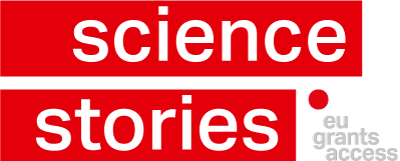
Sustainable research funding
EU GrantsAccess campaigned for a project of the University of Zurich’s Gender Equality Action Plan which aims to support young female scientists in receiving more research funding. A review by Project Manager Dr. Mihaela Falub and Sibylle Hodel, Representative of EU GrantsAccess.
You participated in the project «Research Funding and Academic Careers» of the University of Zurich’s (UZH) second Gender Equality Action Plan which was completed just recently. What was the project’s objective?
Mihaela Falub (MF): We actually had two objectives: first, more junior female scientists should submit their research proposals, both on a national and an international level. Second, their submissions should be even more successful than in the past; that is, more applications should be approved.
So, the proportion of women is rather low when it comes to allocating research funds?
Sibylle Hodel (SH): Yes, statistics have demonstrated clearly that women are underrepresented when submitting applications. However, once they do submit a proposal, they are just as successful as men. We wanted to build on this fact.
Why do you think women are more reluctant to apply for funding?
MF: There are various reasons, surely. The professional network of female scientists is often smaller than the one of their male colleagues and so they are not provided with the necessary information soon enough about where and when to apply.
What practical steps did you take?
MF: We organised several panel discussions with female grant recipients as well as information events about the various grants. During workshops, we showed the women how to submit a proposal successfully. The interest was enormous.
SH: Sometimes, the women’s reserve is only a matter of communication – we keep noticing this time and again during out consultations. Women feel less addressed by grants advertisements as often excellence is emphasised and no other criteria, such as leadership qualities for example, and women do not consider themselves excellent. They are very surprised when we tell them that their curriculum vitae definitely makes them eligible for receiving a grant.
Which other actions did you implement?
MF: The first phase of the project focused on the so-called implicit bias.
SH: Exactly. We invited coaches to train the people dealing with applications in this area; that is, to train them to uncover our unconscious behaviour patterns. This involved questions like: do I treat applications from foreign researchers different from requests by local researchers? Do I talk differently to women and to men? And we established a questionnaire that makes personal prejudices visible – because we all have prejudices.
For example?
SH: Does my counselling differ when dealing with a young female foreign researcher who does not speak my language very well or a fellow countryman speaking my dialect? This was an important first step to improve our work. In a second step, we focused on the individual advice for researchers on the topic of «how do I write a successful proposal?”. In addition, we created casual and noncommittal half-hour consulting blocks during which researchers can determine whether they are eligible for funding. This service was used by very many women, but also by men.
How many workshops did you offer in total?
MF: Altogether 15. Thanks to the outstanding expertise of EU GrantsAccess and the UZH Grants Office, led by Dr. Beatrice Scherrer, with regard to the application deadlines distributed over the year, we were always able to offer our workshops at the right time – from application training to interview coaching. The feedback exceeded all expectations: we had more than 500 female participants.
Did you encounter difficulties as well?
SH: Well, at the beginning of the project some male colleagues asked whether this kind of women’s promotion within today’s university environment was really still necessary. However, the sheer numbers are our evidence: thanks to this project, more women applied for a grant and received it, too – and all without quotas, only because of their excellence.
Can you put this success into numbers?
MF: In 2020, a total of 15 women submitted an application for an ERC Starting Grant at UZH. The previous year, two women applied, three in 2018. Last year, 27 female scientists at UZH submitted a proposal for Ambizione grants, a funding tool by the Swiss National Science Foundation. In 2019, only 15 women applied for this grant, twelve in 2018. And: at UZH, two of three ERC Starting Grants last year were granted to women. In the previous years, women did often not receive grants at all.
Which of the introduced offers helps young female scientists the most?
MF: It is crucial that female researchers gain an overview of potential funding possibilities at a very early stage in their career. Excellence alone is oftentimes not enough to attain a professor’s position. Young researchers and professorships form a pyramid – not all of them manage to reach the top.
SH: That’s true. Female researchers must receive close counselling and support from the very beginning so that they can seize the opportunity to target a grant despite the tough competition.
Will the actions developed in the projects be continued?
SH: For us at EU GrantsAccess, the behavioural patterns training has already contributed greatly to our counselling activities. We will certainly continue to offer the half-hour consulting blocks, both for women and men.
MF: The University of Zurich has implemented the ERC trainings into the Equal Opportunity in Junior Research Positions programme of the Office for Gender Equality and Diversity; these are courses addressing young female scientists. Further actions such as panel discussions with successful female scientists may be incorporated at a later stage.
https://www.gleichstellung.uzh.ch/en/projekte/aktionsplan2017/projekt_2.html

